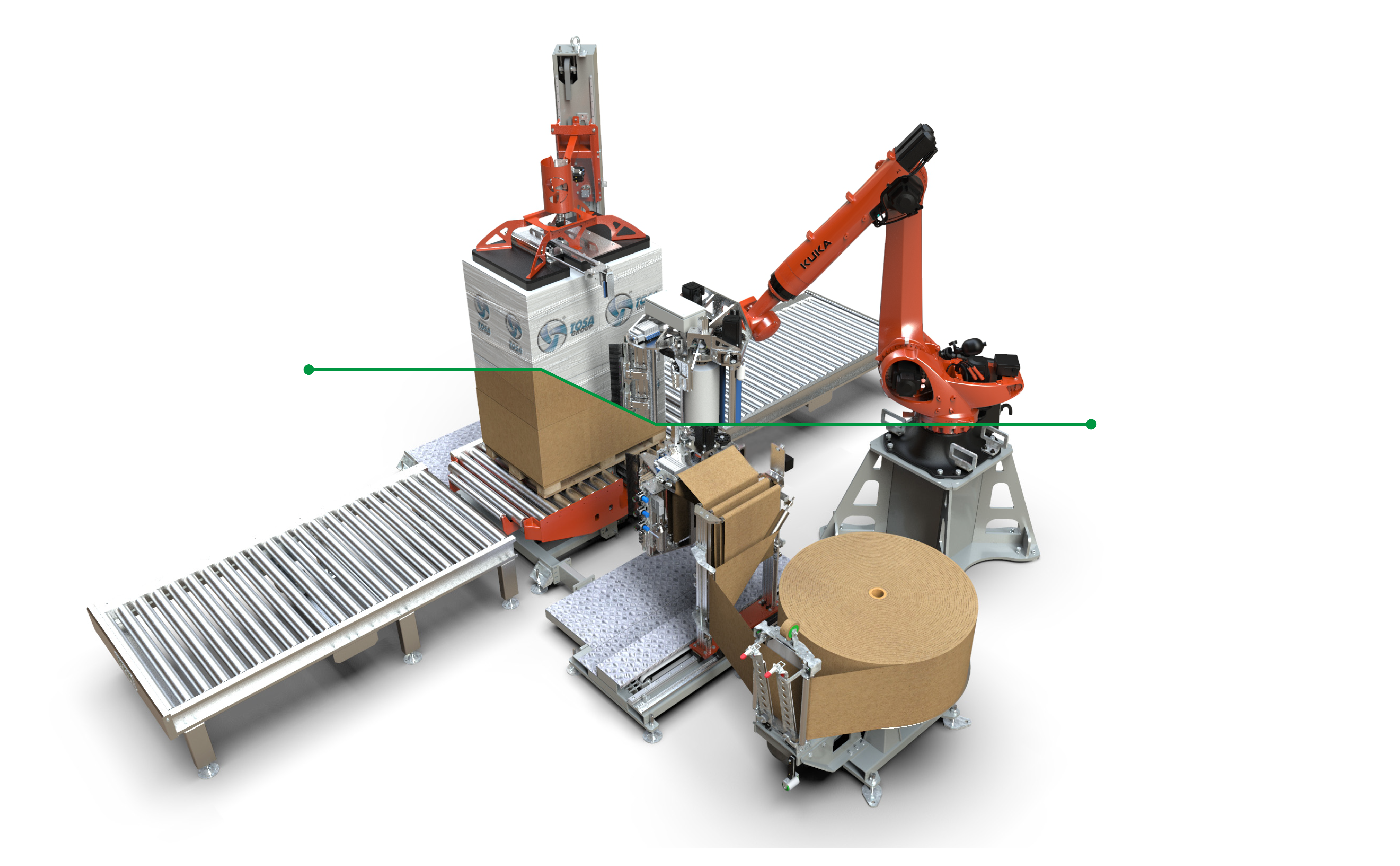Materials and their sustainability are particularly under observation – not only in the packaging industry – because of a growing sensitivity towards environmental protection felt at all levels of society.
The demand of increasingly low-impact packaging has evolved significantly and is a growing trend.
To the extent that the R&D department at Tosa Group, which has been producing end-of-line packaging equipment for forty years – mainly in the Food&Beverage industry – has developed a revolutionary solution to wrap palletized loads: the equipment features interchangeable stretch film and Kraft paper feeding units, offering customers high flexibility.
It is called Cai Lun Hybrid and the project, which is the result of an important investment, aims at greener and more sustainable processes, to help businesses hit sustainability targets, often not so easy to be reached.
Influence of the consumer and public opinion
In the last decade, the misconception that paper is absolutely better than plastic has led public opinion to condemn the latter. Tosa Group thinks that demonising plastic stretch film packaging as a whole is a superficial approach.
On the other hand, it is extremely important to draw attention to the increasingly environmentally sustainable processes businesses are being called upon to comply with, as well as the market trend.
In addition, the circular economy is becoming an increasingly concrete reality. This process is gaining more and more momentum with the worsening of the climate conditions and the ecological crisis, with the multiplication of European and international community directives on these issues and with the evolution of the market, which makes the recovery of raw materials an element of global competitiveness.
As a consequence, sustainability has become an increasingly conscious commitment taken on by both small and medium size enterprises and big multinational companies, particularly in the packaging industry.
For these reasons, Tosa Group decided to bring its own vision and technical solution to the international market table introducing Cai Lun Hybrid at the latest edition of Interpack in Düsseldorf.
An italian family company under the international spotlight
On the market with its three brands TOSA, MIMI and CMR, the company based in the Cuneo area aims at meeting the stabilization and safety requirements for palletised and non- palletised loads with a full range of wrapping, shrinking and strapping machines.
Today Fabio Tosa and his sister Serena follow in their father’s steps as managing directors and have been leading the company since 2007. “We have pursued our father’s dream: developing high-quality technology and high-end machinery to offer efficient and safe tertiary packaging solutions”, states Fabio Tosa. “The Cai Lun Hybrid robotic cell is a revolutionary project, developed for companies aiming at a plastic free policy within a few years; however, it is worth mentioning that plastic film manufacturers are reducing the impact of this material, with up to 40% recycled content”.
In fact, Tosa Group has followed the market trend and the demand of their clients, being aware that if “going beyond” plastic in primary and secondary packaging has long been an established practice, with the same cannot be said for tertiary packaging, where the wrapping of palletised loads has to ensure stability and safety above all.
“An innovative and extremely strong Kraft paper by Mondi was able to help us on this project, able to ensure the stability required for palletised goods, and which was the starting point for us to start working on an even more stretchable consumable to increase its adaptation to the load”, adds Mr. Tosa.
This type of Kraft paper is suitable to wrap regularly shaped palletised loads, with no edges and with a geometric smooth perimeter. This is what pushed Tosa Group to invest on a research and development project which, by implementing a pioneering method of processing paper (be it Kraft or other types), makes it possible to obtain what they call “deformable paper”, capable of adapting to the profile of the pallet in the best possible way, thanks to a process that “stretches” the fibres that compose it by up to 40%. This process not only allows greater adaptability to the perimeter of the palletised product, while making it more stable and safer, but it also offers a wider range of application segments for paper packaging, until now only limited to the Food&Beverage industry.
Interchangeability is the real added value
The Cai Lun Hybrid wrapping machine can process all kinds of paper reels available on the market, mainly Kraft paper.
The benefit for the customer is, of course, the possibility to automatically select the type of packaging based on the pallet entering the machine: in fact, Cai Lun Hybrid is a robotic cell with an anthropomorphic, six-axis robot that allows to interchange stretch film and Kraft paper units, while ensuring maximum production flexibility.
Among the other benefits of this solution is certainly that of CO2 saving. In this sense, the use of Kraft paper for tertiary packaging can help hit sustainability targets while reducing the environmental impact. It is a completely new way to wrap pallets that allows for a shift to renewable sources. In fact, the use of 100% Kraft paper allows a 62% lower carbon footprint than that of virgin plastic stretch films.

